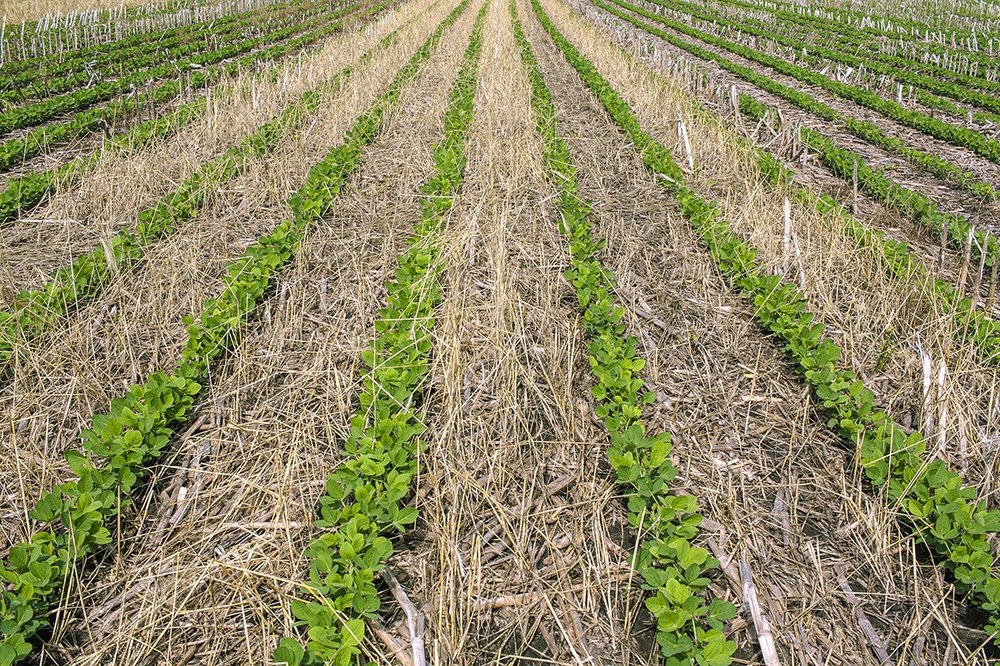Diversified rotations of cropping systems can benefit both farmers and the environment

Rows of young Soybeans in no-till field. Credit: Adobe Stock
Problem
Can corn and soybean producers use less insecticide and still maintain competitive yields?
- No-till producers of corn and soybeans often apply insecticides multiple times each growing season to reduce pests that can destroy crops.
- Widespread pesticide use can have significant negative impacts, including elimination of beneficial insect predators and pollinators, losses to adjacent crops, and contamination of groundwater.
Findings
Researchers conducted a six-year comparison of two types of crop rotations under no-till production: standard corn-soybean rotation with preventative insecticides applied twice annually to suppress caterpillars and other pests, and a diverse rotation of corn, perennial forages, and cover crops that received insecticides only as needed.
- Yields produced by the two systems were similar, with the more diverse rotations that promoted predatory insects averaging only about 10 percent reduced establishment of corn plants due to early season pests.
Impact
Diversified crop rotations that avoid preventative insecticides create conditions that promote populations of predatory insects to combat pests. Considering the cost of multiple insecticide applications and an ongoing struggle with commodity prices, this research demonstrates that high-diversity rotations incorporating integrated pest management can compete with low-diversity systems that include preventative insecticides.
Related Research Areas: Advanced Agricultural and Food Systems, Environmental Resilience
Research Credits
Team
- John Tooker, Heather Karsten, Anna Busch, Margaret Douglas, Glenna Malcolm
Participating Departments
Competitive Funding
- USDA Northeast Region SARE
Other Supporting Sponsors
- USDA Agricultural Research Service, Penn State College of Agricultural Sciences
Federal and State Appropriations
Emerging Discoveries
Published Research
A high-diversity/IPM cropping system fosters beneficial arthropod populations, limits invertebrate pests, and produces competitive maize yields
-
Busch, A. K., Douglas, M. R., Malcolm, G. M., Karsten, H. D., & Tooker, J. F. (2020). A high-diversity/IPM cropping system fosters beneficial arthropod populations, limits invertebrate pests, and produces competitive maize yields. Agriculture, Ecosystems and Environment, 292, [106812]. https://doi.org/10.1016/j.agee.2019.106812
Office for Research and Graduate Education
Address
217 Agricultural Administration BuildingUniversity Park, PA 16802-2600
- Email agresearch@psu.edu
- Office 814-865-3136
Office for Research and Graduate Education
Address
217 Agricultural Administration BuildingUniversity Park, PA 16802-2600
- Email agresearch@psu.edu
- Office 814-865-3136



